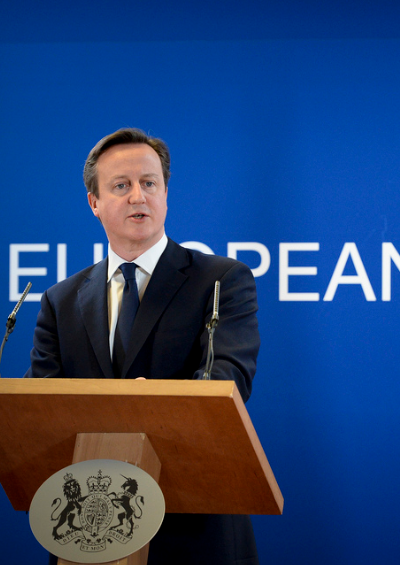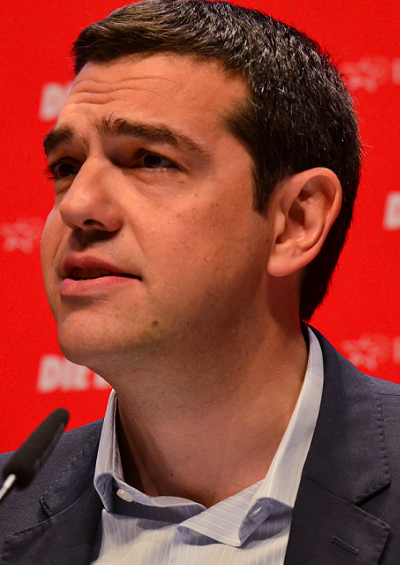David Cameron and Europe: On the Road to Damascus
Cameron’s problem is not about the EU, but about Britain and the future path of his own party.
June 12, 2015

Is David Cameron, the British Prime Minister, on his road to Damascus with regard to Europe? Will it make him – or break him? No one, not even the Prime Minister himself, can be certain.
What is certain is that Mr. Cameron and his anti-Europe Foreign Secretary, Philip Hammond, are trying very hard to get EU leaders to make concessions.
Meanwhile, the Germans and other EU leaders are politely but firmly telling Mr. Cameron that he can have warm words, but no real concessions. What he seeks — giving the UK a special offshore status within the EU – is not a deal to be had.
As a result, Mr. Cameron — ever the optimist for his own cause — is in danger of over-promising once again. There have been several incidences before when he thought he had a special deal with Mrs. Merkel, only to find out he had over-interpreted what was on offer.
This is the reason why the Prime Minister will ultimately have to decide whether or not to convert his own party to the virtues of Europe. That would compel him to generate enthusiasm for a “Yes” to the EU – even though he has spent much of his political career decrying and denigrating it.
In the end, Cameron’s real fight is not so much about Europe or Britain’s role in it. It is a battle over the soul of the Conservative Party.
Cameron’s real problem stems from the fact that other European politicians realize that as well. They are not inclined to extend a hand in an internal British party squabble.
To be sure, the Tories this century have made it their cause to argue that the EU and especially the Euro is bad for Britain. They have done so with a quasi-religious belief and the passion of a Martin Luther.
Small concessions
Perhaps because of their zeal, there is a comfort zone belief in Cameron’s circles that Mrs. Merkel will do anything it takes to avoid Brexit.
She has no problems with easy-to-grant cosmetic demands such as postponing those to some future date when there is a new EU Treaty.
But even if that “concession” materialized, it would almost certainly take effect after she has left office and definitely after David Cameron has left Downing Street.
The Brits can have their little annex at the end of the Treaty maintaining that the words in the preamble about an “ever closer union of peoples” does not apply to Britain.
Read the fine print on any of the EU Treaties and you will find lots of little country-specific paragraphs in the end, which were added to satisfy particular demands of a country worried about some aspect of domestic public opinion.
It must be sobering news for Mr. Cameron to hear how Manfred Weber, the German MEP who heads the Christian Democratic group in the European Parliament, views the issue.
In exchange for Britain not being covered by the commitment to “ever closer union,” London would have to give up any right to veto moves by other countries that are keen to go in that direction.
Weber was speaking after visiting Prime Minister Cameron at Chequers, the country house retreat. The visit was a telling sign of Cameron’s belief that the only country he really needs to talk to is Germany.
Why else would he have chosen to invite a leading German MEP for a full-on Chequers tour and visit instead of a quick chat in Downing Street? Even British MEPs have rarely had that privilege.
Costly mistakes
That Cameron now has to play catch-up even with conservative MEPs is the consequence of his unwise decision in 2009 to break links with German and other center-right parties grouped in the center-right European People’s Party federation.
From then on, the Conservative Party’s main ally in the European Parliament has been Poland’s rightwing nationalist catholic Law and Justice Party. Its candidate Andrzej Duda has just won the Polish presidency.
President-elect Duda, even though broadly an ideological soul mate, given his eurosceptic views, has made clear his complete opposition to the core of Cameron’s main reform interest.
As Duda sees it, the UK has no right to discriminate against Polish and other EU citizens by denying them equal pay, as compared to British workers, for the first four years of work in the UK.
One example of how much the European journey may be going in a direction different from Britain’s preferred path is the joint policy paper produced by France’s young reformist Economics Minister, Emmanuel Macron and the Social Democrat in Germany’s coalition government, Sigmar Gabriel.
They call precisely for what Cameron detests — an integrated Eurozone with joint policies across a range of areas.
If the EU does decide to take this path, it spells trouble for Cameron. His cabinet is full of open Eurosceptics, including a former Tory leader, Iain Duncan Smith, and the boisterous Mayor of London, now an MP, Boris Johnson.
Open dissent
Fifty Tory MPs have formed an open caucus for withdrawal. Recently, there was an explosion of anger at Cameron’s attempt to silence EU hostile ministers. He quickly did a U-Turn, declaring his on-the-record remarks as “misinterpreted.” The incident created headline jeers.
All this evidence points in the direction of Cameron facing his Damascus moment soon. It is becoming ever clearer that Cameron’s problems have nothing to do with the EU, but everything with Britain and the future path of his own party.
Other European nations are going to be little inclined to go out of their way to help Britain and its conservative party sort out internal squabbles over direction, purpose and affiliation.
Takeaways
Cameron's real battle is over the soul of the Conservative Party
Germans are telling Cameron that he can have warm words, but no real concessions.
Giving the UK a special offshore status within the EU is not a deal to be had.
The Tories have made it their cause to argue against the EU and especially the Euro.

